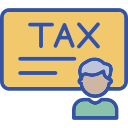Poor Recordkeeping and Digital Hygiene
Adopt a weekly 20‑minute ritual: categorize income, tag expenses, and reconcile bank feeds. Quick habits beat marathon catch‑up sessions. What’s your rhythm? Post your checklist so others can borrow it and stay consistent.
Poor Recordkeeping and Digital Hygiene
Scan receipts the day you get them, rename with date‑vendor‑purpose, and file into project folders. Metadata saves hours during filing season. Recommend your favorite receipt app and backup method in the comments.



